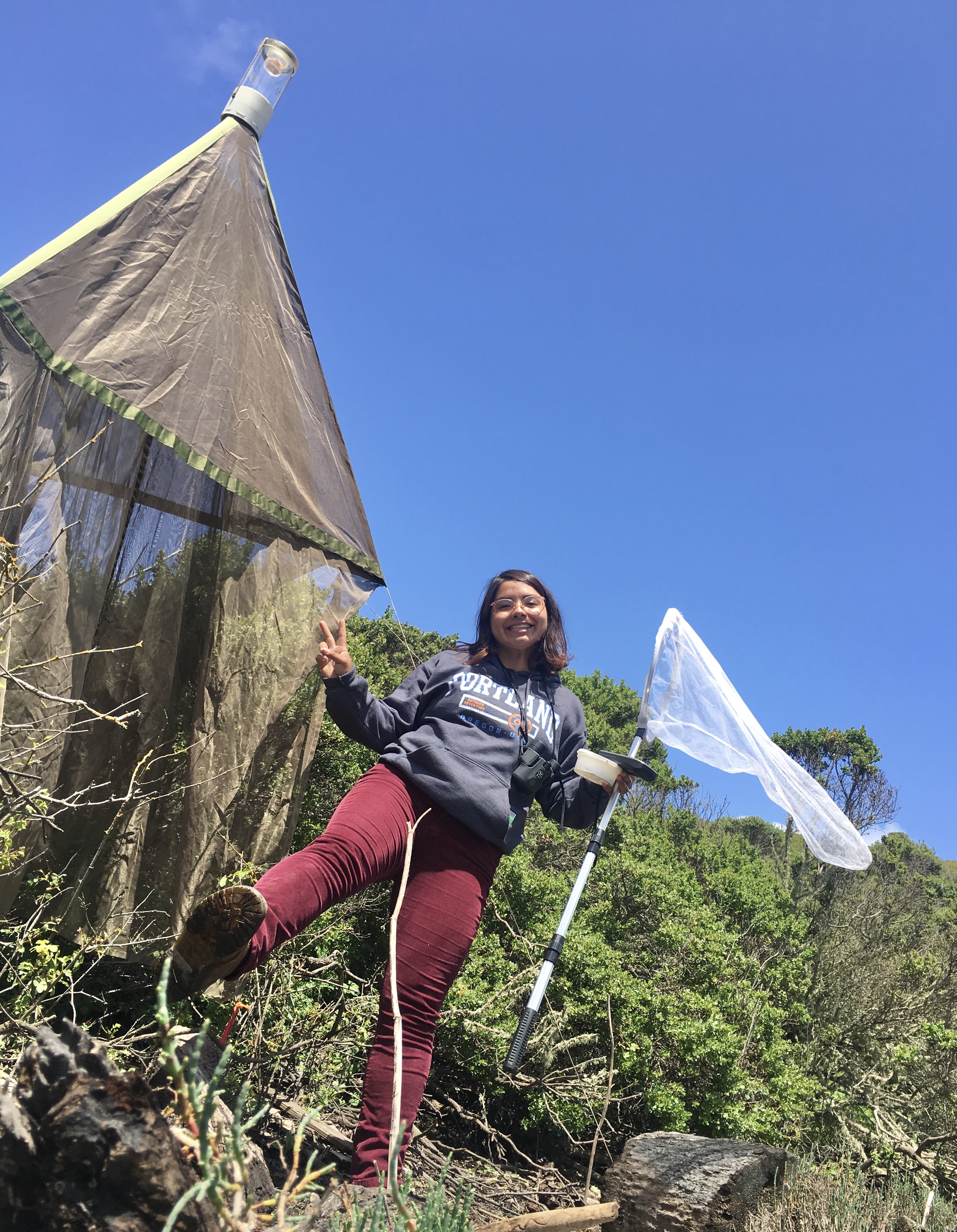Jessica Correa
 Jessica is originally from Los Angeles County and later came to Santa Cruz where she completed her bachelor’s in sociology and environmental studies by 2019. Jessica grew up naturalizing in her backyard and always found ways to make new discoveries, even within neighboring trees.
Jessica is originally from Los Angeles County and later came to Santa Cruz where she completed her bachelor’s in sociology and environmental studies by 2019. Jessica grew up naturalizing in her backyard and always found ways to make new discoveries, even within neighboring trees.
Jessica recalls the amazing nature in Santa Cruz, but also the great instructors she had like Katie Monsen, Sara Baguskas and Julie Hazlewood, helped her further her life as a naturalist. Going on field trips where she could work with her peers and engage with her professors proved to be very meaningful for Jessica.
Jessica views a challenge in natural history that people of color have had to face is the lack of representation and overwhelming whiteness of the environmental movement especially, when the brunt of climate injustice is faced Black and brown communities in low income areas. She has had to and continue to overcome the anxiety that boils up when having to speak out about the lack of representation, or reminding people to acknowledge that we are on stolen land, or having to address racist views held by some older white naturalists. She believes we can start addressing some of these issues by reaching out to students that are not just in environmental classes, (for example, start out in large classes that are for incoming students). You could center the lecture halls, (ie: going to the same room like humanities or CU2 at different times and presenting the same thing) but if you want to reach a greater diversity of students you have to go to the main large classroom at each college (ie: the smaller lecture hall at oakes, kresge, etc). Also, hosting more environmental studies related events at Oakes rather than Rachel Carson College would be a great step. In terms of the larger Santa Cruz County there should be more efforts to reach out to people not just in town but in Aptos, Soquel, Watsonville and more naturalist related events there to connect the communities. On a much larger scale, we need more programs that offer free services/ nature education to schools with low funds.
